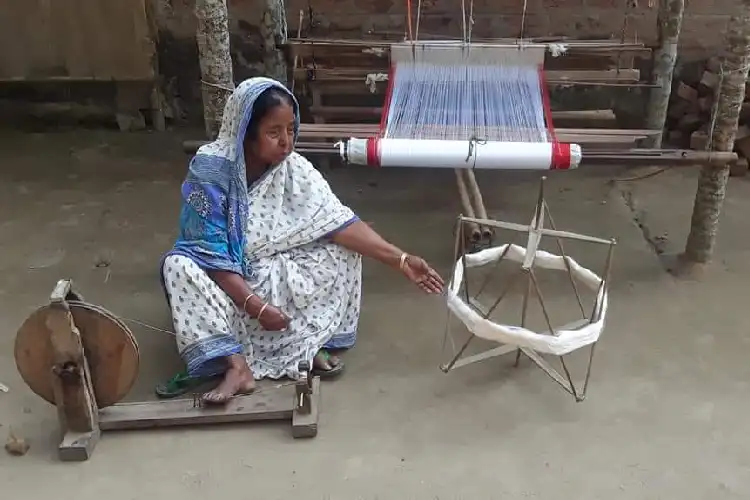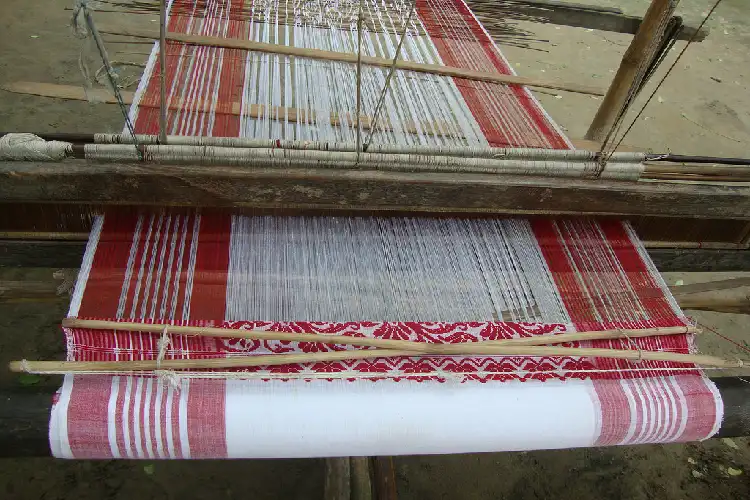.webp)
Daulat Rahman/Guwahati
When Mahatma Gandhi said “Assamese women are born weavers, they can weave fairy tales in their cloth”, he wasn’t exaggerating. The words of the Father of the Nation are well reflected in Jajori, an Indigenous Assamese Muslim-dominated village in central Assam’s Nagaon and Morigaon districts. The only source of livelihood for the villagers is the handwoven clothes made by the Muslim women. These clothes are sold in Assam and rest of India.
 A weaver at work in the Jajori village of Assam
A weaver at work in the Jajori village of AssamInitially, the Muslim artisans of the Jajori village were personally involved in weaving. In 1960-61, some local elders tried to organize these artisans and the late Jamiat Uddin, and Majlul Haque formed the Jajori Muslim Village Weaving and Cutting Cooperative Society..

A weaver diaplaying handloom cloth
The cooperative society has been run by Nechima Begum alias Mary Begum since 1980.
Gulnaha Begum, a craftswoman, said she has provided education to her two sons and arranged marriage for her daughter by weaving and selling clothes. The women of the village including Chimim Sultana, Nazima Begum, Runu Begum, Maria Nesa, Alea Begum, and Punang Begum have been involved in the weaving industry for a long time.
The state government has not provided any major financial assistance to the weavers except one-time assistance under the Din Dayal scheme.
Abdul Khayer Ahmed, a prominent social worker in Jajori village, said that when Mahatma Gandhi called for a boycott of foreign textiles in 1905, the artisans of the village cut their yarn and wove clothes for themselves and others.

The fairytale designs woven in cotton
The women of this area weave saris, gamochas, rihas, chadars-mekhelas, tablecloths, etc.
Even though there is an office of the Handloom and Textiles Department at Dalang Ghat near Jajori. However, the response of the department is not as expected. But the weavers are not looking towards the government.
Even though there is an office of the Handloom and Textiles Department at Dalang Ghat near Jajori. However, the response of the department is not as expected. But the weavers are not looking towards the government.
